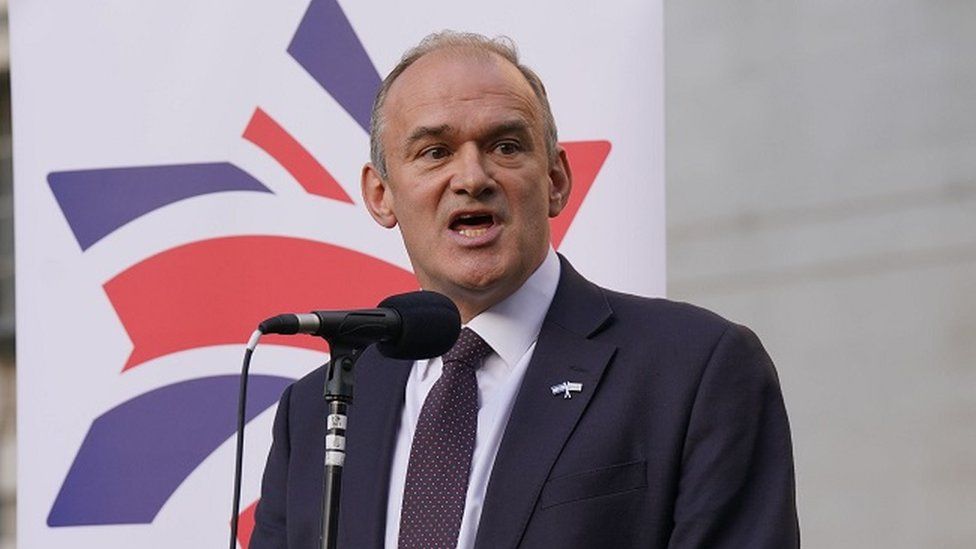ARTICLE AD BOX
 Image source, PA Media
Image source, PA Media
By Henry Zeffman
Chief political correspondent
Liberal Democrat MPs have been given a standard letter to send to constituents asking about Sir Ed Davey's role in the Post Office scandal.
The Lib Dem leader has been under pressure since it emerged he initially refused to meet campaigner Alan Bates when he was a minister.
He says he "deeply regrets not realising that the Post Office was lying to him".
The BBC has seen a draft response to emails about the issue.
The document says that "if asked about Ed's role", Lib Dem MPs should reply by stressing that "the scandal took place over many years from 1999, during which time different governments and ministers from all parties were in post."
The script continues: "For 19 months, between 2010 and early 2012, the now Liberal Democrat Leader, Ed Davey, served as Postal Affairs Minister. While Ed was Minister, the scandal was not raised with Ed on the floor of the House of Commons."
The BBC was handed a printout of suggested letter to constituents
In response to questions about Sir Ed's initial decision not to meet Alan Bates, the leading campaigner for postmasters, the draft email stresses that in October 2010 the pair did then meet, and that Sir Ed "followed up, writing to him with answers he had been given by Post Office executives. However, the Post Office misled him, providing categorical assurances about Horizon which were untrue."
A Lib Dem spokesperson said: "This is all open to the general public already and made clear on a page on our website."
Conservative MPs have seized on the controversy to call for Sir Ed to hand back his knighthood or even resign as Lib Dem leader.
Lib Dem sources say Labour and Conservative ministers were also in positions of power during the long-running scandal.
But the emergence of the draft letter suggests the party's MPs are coming under pressure from constituents over the controversy.

 1 year ago
56
1 year ago
56








 English (US) ·
English (US) ·